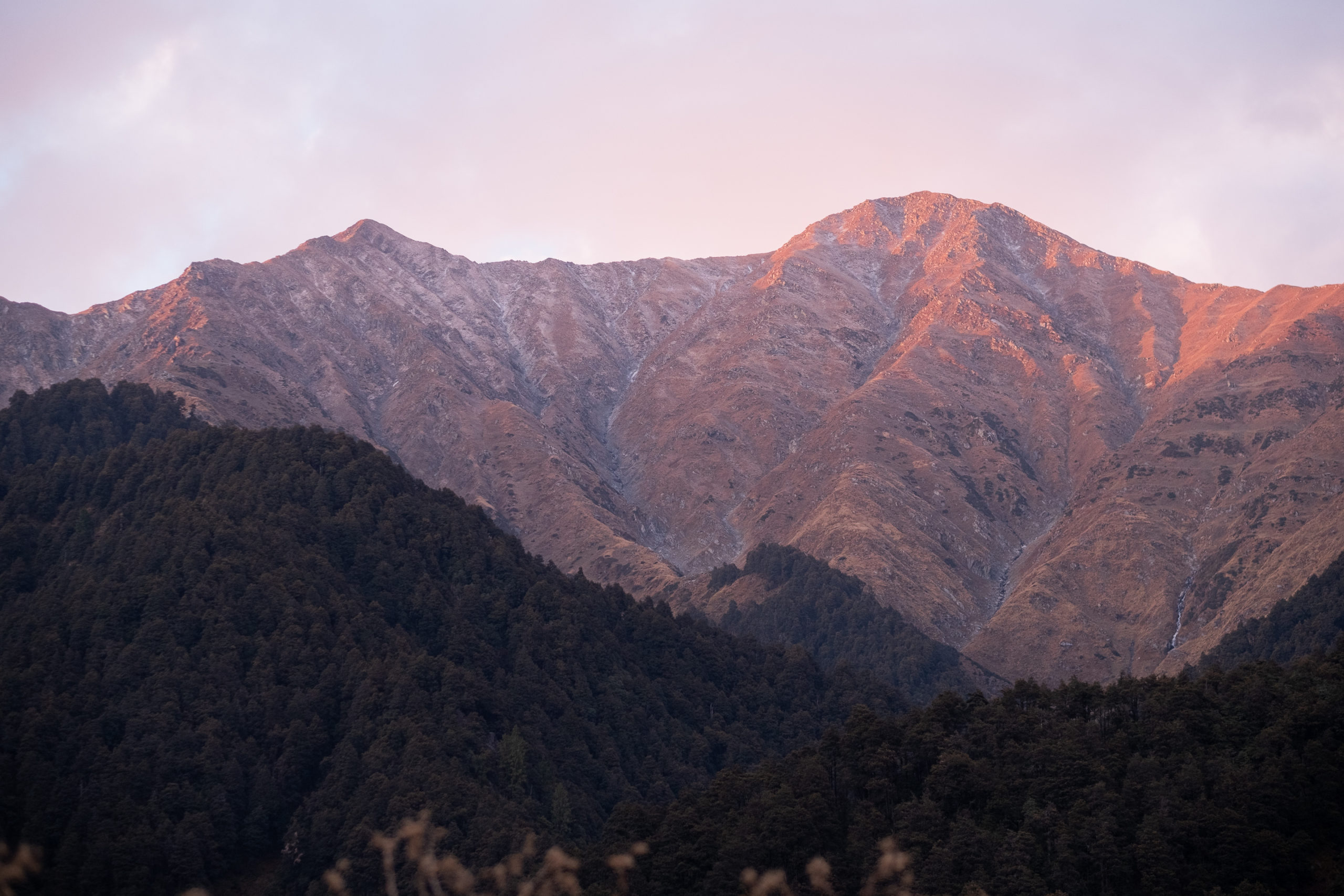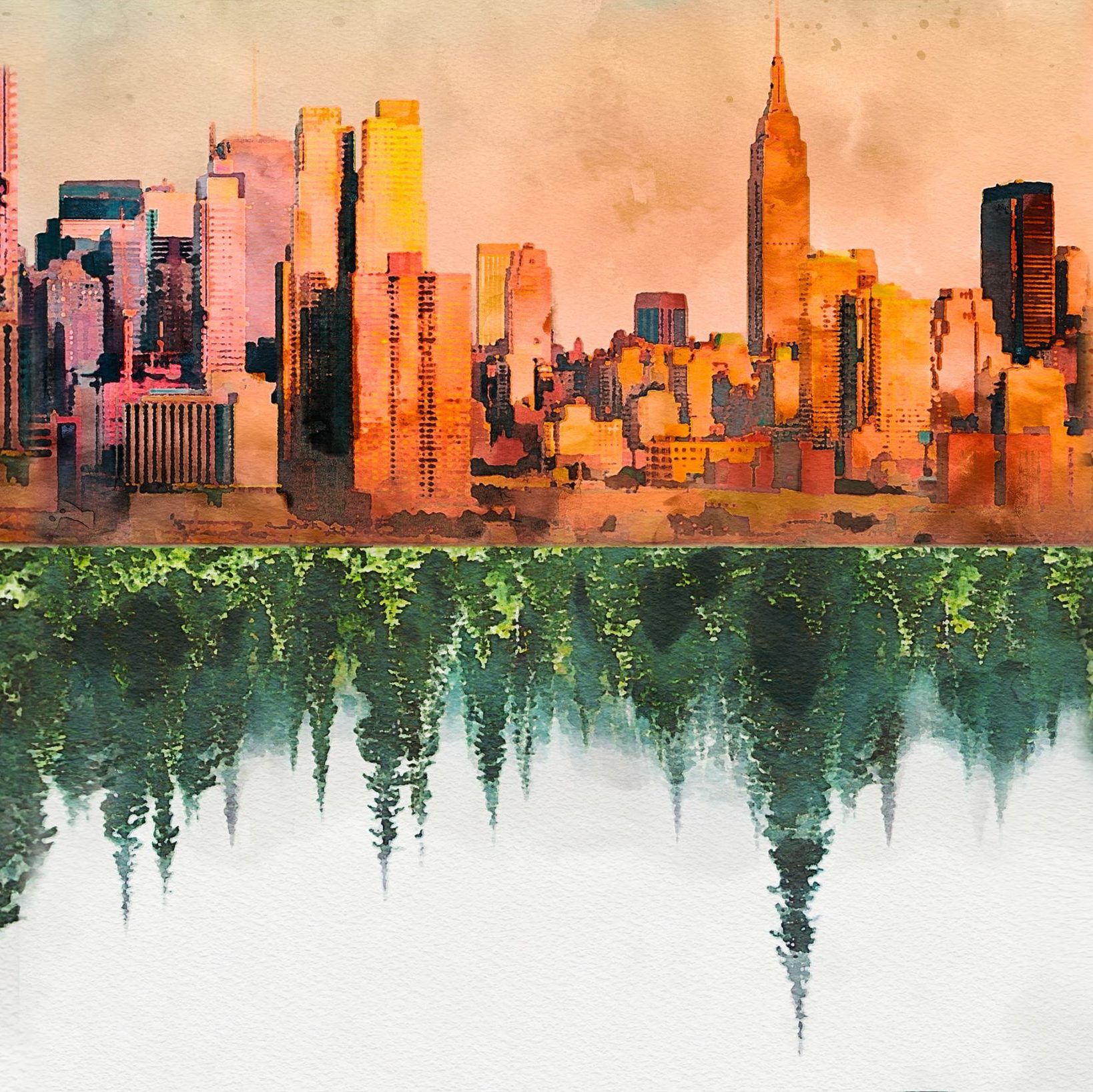“A Little Green” is an eight-part podcast exploring our relationship with the environment and how we can each become climate leaders in our own communities.
Listen on Apple Podcasts Listen on Spotify Listen on Google Podcasts Listen on StitcherIn the face of an escalating climate crisis, what does it mean to do our part? “A Little Green” is a short podcast series from Avocado Green Brands. Follow along as Avocado’s own executive producer Christina Thompson investigates her relationship with the environment and its health.
It won’t be simple. Through vulnerable and candid conversations with those at the forefront of the climate movement, Thompson explores her own awareness and impact. Follow along as she unpacks common questions many of us find ourselves asking these days, and shows how we can each challenge the status quo and become climate leaders in our own communities.
“Fighting the climate crisis is at the heart of Avocado’s mission. We produced ‘A Little Green’ to connect with our community on a deeper, actionable way,” says Thompson. “After working on this podcast, and speaking with those on the forefront of the climate movement, I’ve never been more hopeful for our future. We have the tools, and we have the solutions — and there’s so much opportunity out there. Our goal is for people to listen and become invigorated about the role we all play in fighting the climate crisis.”
Protecting our planet will take all of us. So let’s dig in — together.
Episode 1: Where Do We Begin?
How do we even begin to understand — let alone act on — a problem as big and complex as climate change? Christina Thompson is on a mission to find out.
She starts by going back to basics, and high school science teacher Sofia Di Bari is here to answer the questions that some of us might be a little hesitant to ask, like — are we even calling it global warming anymore?!
After gaining a better understanding of her own day-to-day impact, Christina talks with Dr. Katharine Wilkinson, a climate activist and author of The Drawdown Review and the New York Times’s bestselling anthology All We Can Save. Dr. Wilkinson unravels some nuanced questions: What is an individual’s role in all of this? And how much of the science does one person need to understand before taking real action?
Episode highlights:
- Climate Science 101 (6:24)
- Christina calculates her environmental footprint (14:20)
- Top climate solutions and how we move forward (17:39)
Resources:
- New York’s Resilient Schools Consortium
- Ecological Footprint Calculator
- Project Drawdown
- A Matter of Degrees Podcast
- All We Can Save
- 8 Wins in The Fight Against Climate Change
- Keeping Up with Climate Change
- Your Vote is Essential
Episode 2: Does Recycling Work?
Recycling. It’s something a lot of us do on a daily basis. Sorting out plastic, cans, and cardboard seems almost second nature at this point, right? But in this episode, Christina learns that this isn’t necessarily the case for everyone, and she sets out to learn more about how we deal with our waste. Is there more to it? What are the big recycling do’s and don’ts? And what’s composting all about? What happens when we throw food in the trash?
Sarah Dearman, vice president of circular ventures at the Recycling Partnership, shares the lowdown on recycling. She also introduces a key concept: circularity. Christina then sits down with TerraCycle, an innovative company that aims to recycle everything to better understand the science of recycling, and what the future of recycling could look like.
After all of this talk about recycling, Christina decides to see it in action. She visits local recycling hub Sure We Can and gets a tour from executive director Ryan Castalia. A big question presents itself: what about plastic? Svanika Balasubramanian of rePurpose Global paints a stark picture of plastic pollution, and what we can do to help.
Finally, Christina takes a look at another circular process with Rebecca Louie: composting. She hears about the potential to compost in her apartment and community, and what a large-scale compost system might mean for our planet’s health.
Episode highlights:
- Defining circularity (3:11)
- TerraCycle’s “recycle everything” approach (9:29)
- The science of recycling (13:33)
- On the ground at Sure We Can recycling and sustainability center (16:33)
- Breaking down our world’s big plastic problem (24:49)
- The impact (and the joy!) of composting (31:52)
- A glimpse into Portland’s curbside composting system (36:08)
Resources:
- The Recycling Partnership
- TerraCycle
- Sure We Can
- rePurpose Global
- The Compostess
- How to Compost
- Find out what your local government is doing
- 5 R’s of Sustainability
- 4 Innovative Plastic Pollution Solutions
- A Guide to Recycling Symbols
- How to Compost in a Small Space
Episode 3: What Products Can I Trust?
Every day, we make decisions about what to buy and who to buy it from. Choosing environmentally responsible products and brands is important to many of us, especially in light of what’s happening with our climate. But these choices can be difficult to make when we’re surrounded by persuasive advertising and we don’t have the time to research every bottle of detergent or pair of shoes.
In this episode, Christina focuses her attention on greenwashing. It’s one of those big bad words of environmentalism, and it can be difficult to parse. Many of the products we use in our daily life are subject to greenwashing — even bank accounts! So, how do you avoid greenwashed products? How much does your dollar actually matter? And what are companies doing to act on climate change?
Christina brings these questions and more to a few trusted experts who are determined to combat greenwashing. First, she catches up with Avocado’s Director of Sustainability and Impact, Bri Decker, to hear how Avocado communicates its impact to customers.
Bri talks about the legitimate, rigorous certifications and labels that brands can pursue to verify and convey their environmental practices. Christina chats with representatives of these certifications to learn more. They include Climate Neutral, 1% for the Planet, and B Lab’s B Corp certification.
Going beyond specific certifications, Christina talks with Raj Aggarwal of the B Corp Climate Collective about how business leaders can and should be approaching climate action, specifically through climate justice. AR Vahabzadeh of the American Sustainable Business Council also shares how the organization is advocating for these priorities legislatively.
Episode Highlights:
- What is greenwashing? (3:04)
- Trusted certifications we can look for when shopping (5:38)
- What is a stakeholder? (8:35)
- Going climate neutral (10:52)
- What 1% of sales can do for our planet (16:04)
- Avocado’s journey to B Corp certification (19:59)
- Defining climate justice (21:56)
- 8 questions to ask yourself as you move toward climate justice (25:03)
- How values-driven organizations are advocating for change on a national scale (26:33)
Resources:
- Climate Neutral
- 1% for the Planet
- B Lab
- American Sustainable Business Council
- B Corp Climate Collective
- EPA standards
- The Truth About Greenwashing
- Conscious Living 101
- What are Carbon Offsets?
Episode 4: Extreme Weather: The New Normal?
Each week seems to bring news of another catastrophic weather event, from hurricanes to flash floods. It’s clear that these events — that many communities have been facing for years — are now intensifying and playing out all over the world.
Christina wakes up to the aftermath of one such event: the 2021 Bootleg wildfire.
The massive West Coast wildfire spewed unhealthy amounts of smoke across the country, reaching her all the way in New York. Christina asks a tough question: Are these extreme weather events the new normal? And can she do anything about it?
These questions lead her to a recent study from climate researchers Tom Corringham and Rosana Aguilera. They found troubling evidence about the effects of wildfire smoke on human health, and they join Christina to share their takeaways. So what can we do today to prevent devastating wildfires?
Christina revisits climate justice, a concept introduced in our previous episode. According to many on the front lines of the climate crisis, the people most affected by climate events likely have the knowledge to develop solutions in their communities. Christina gets in touch with Jade Begay, the climate justice campaign director for NDN Collective, to learn more about climate justice and how Indigenous groups are uniquely poised to lead the way on climate.
With Jade’s insight in mind, Christina speaks with Bill Tripp, the Director of Natural Resources for the Karuk Tribe in Northern California, and he explains the history and importance of cultural fire use — a promising and proven practice.
Episode Highlights:
- The impacts of wildfire smoke on human health (3:11)
- Climate justice, and why Indigenous communities are already equipped to lead solutions (10:53)
- The Karuk Tribe’s approach and relationship to nature (11:48)
- What is cultural burning? And how could it change the severity of wildfire events? (14:20)
- What you can do to help preserve traditional Karuk ecological knowledge (24:53)
Resources:
- Donate to the Karuk Tribe’s Endowment Fund
- WECLIMA
- Study Finds Wildfire Smoke More Harmful To Humans Than Pollution From Cars (NPR)
- NDN Collective
- Karuk Tribe
- Ask your elected officials to act on climate change
- How Indigenous Groups are Leading the Way on Conservation
- Why Prescribed Burns are Essential for Forest Health
Episode 5: Mitigation, Adaptation, Resilience!
We know that climate change is here. In this episode, Christina looks for ways to not only live with climate change but to also reshape our future in a more livable and equitable way. She looks at three complementary pathways forward; mitigation, adaptation, and resilience.
But first, she debunks the “great equalizer” myth — that people are affected by huge catastrophes equally. She learns that, in reality, some communities are hit first and worst. This is a core principle of climate justice.
Christina gets in touch with a local New Yorker and the director of New York Lawyers for the Public Interest, Anthony Rogers-Wright. Anthony helps explain environmental and climate justice in more detail.
To live with climate change, it’s clear these injustices need to be addressed. So Christina talks with Professor Vivek Shandas, who specializes in climate adaptation, to get a better sense of what this livable future might actually look like.
During the making of this podcast, Portland, Oregon, was hit with an unprecedented heatwave. Our producer, Anna, lives there, so we decided to focus on this event, and see what kinds of lessons we could learn from it.
Episode Highlights:
- What a winning approach climate action could look like (3:59)
- The origins of environmental justice (4:27)
- Why intersectionality has to be central to climate and environmental action (6:03)
- How we move forward in an era of climate change, using three complementary strategies to create a just and livable future (7:53)
- Zeroing in on the unprecedented 2021 heatwave in Portland, Oregon, and what we can learn from this event (12:35)
- How and where we can implement adaptation strategies (18:39)
- Why community leadership, social infrastructure, and mutual aid make a huge difference in the face of climate change (21:28)
- Advice for taking action in a sustainable way (23:00)
Resources:
- New York Lawyers for the Public Interest
- Intersectionality Matters! With Kimberle Crenshaw podcast
- Dr. Robert Bullard, the “father of environmental justice”
- What do adaptation to climate change and resilience mean?
- Mutual Aid Toolkit
- West Brooklyn Waterfront Mutual Aid
- How Environmental Racism Makes Urban Heat Islands Worse
Episode 6: Eco-Anxiety & The Mental Health Toll
We’ve heard about some of the physical tolls of climate change — catastrophic weather events like wildfires and heatwaves. Now, Christina explores how it’s affecting our mental health. How do we cope with all of the big emotions that climate change brings up? What do we do with feelings like anxiety, grief, anger, and fear?
Christina talks with author Michele Wucker about the reactions many people have when faced with climate change: denial and avoidance. She likens these big crises to gray rhinos. They’re right there, charging at us, so how do we get from denial to action?
Many young people have been raising the alarm about the climate crisis. Georgia Wright, co-creator of the podcast series Inherited, shares insight into the generational psychology of climate change — and she brings up an important term that people of all ages are grappling with: climate anxiety.
Christina goes to Professor Sarah Jaquette Ray for a definition, who helps uncover the range of emotions that we might be feeling when it comes to climate change. She emphasizes an alternative way of approaching climate change, one that moves beyond urgency, dystopia, and despair.
Episode Highlights:
- The very human way many people respond to big crises (5:21)
- How young people are coping with climate change (7:09)
- Defining climate anxiety — and understanding how to deal with it (11:42)
- Moving through burnout, despair, and urgency (18:57)
- What does joy have to do with all of this? (21:45)
Resources:
- Inherited podcast
- Climate Anxiety Is an Overwhelmingly White Phenomenon (Scientific American)
- A Field Guide to Climate Anxiety
- Why Most Americans are Dealing with Climate Anxiety
- Using Art to Process Eco Anxiety
- How Climate Cafes Are Helping People Deal With Eco-Anxiety
Episode 7: Climate Leadership
It’s the penultimate episode of A Little Green, and it’s time to talk policy. Christina gets up to speed on the latest climate action in Washington. What’s on the table? And who’s at the table?
What’s clear is that it’s going to take bold, transformational climate action to steer us toward a livable future, and the Green New Deal has come to symbolize just that. Christina talks with fellow podcaster Georgia Wright about what this Green New Deal is all about.
Jade Begay of NDN Collective and AR Vahabzadeh of the American Sustainable Business Council join Christina to shed light on the Biden administration’s approach to climate change and how they’re incorporating important environmental justice principles that are so vital to climate action.
Christina brings things back to New York to dig into one amazing example of bold, just, and intersectional initiative with Anthony Rogers-Wright of New York Lawyers for the Public Interest. It’s called Renewable Rikers.
With so much great work being done by these organizers in the climate movement, Christina wonders why we haven’t made bigger strides on the national and global scale. It turns out — we’re dealing with a leadership crisis. Christina looks at the ugliest manifestation of this leadership crisis with Sarah Jaquette Ray, and Katharine Wilkinson explains who needs to take the wheel if we’re going to move forward.
Episode Highlights:
- What is the Green New Deal? (2:29)
- Understanding President Biden’s Build Back Better agenda and how climate factors in (6:22)
- What intersectionality looks like in action (14:19)
- Why the climate crisis is a leadership crisis (18:23)
- The dangers of moving forward without taking justice into account (21:19)
- What transformational climate leadership looks like (23:07)
Resources:
- Read more about the Green New Deal and Civilian Climate Corps
- Mobilizing an Indigenous Green New Deal
- Hear from Inherited podcast’s Green New Dreamers
- White House Environmental Justice Advisory Council
- Renewable Rikers
- Climate Anxiety Is an Overwhelmingly White Phenomenon (Scientific American)
- What We Like (and Don’t Like) About the Biden Climate Plan
- This is What Supporting Climate Justice Looks Like
Episode 8: How Do We Move Forward?
What can one person do about the climate crisis? It’s a question that’s nagged Christina from the beginning of this podcast, and one she seeks to answer in the final episode of our series. With seven episodes under her belt, she wants to know how she can put all of these learnings into practice in her own life, and, most importantly, how to share that knowledge with the people around her.
She finds out that all this “talking about it” is actually a pretty big deal. Dr. Katharine Wilkinson and Professor Sarah Jaquette Ray make the case for having these climate conversations. So, Christina sets out to understand what climate communication is all about. What’s the best way to talk about all of this? And, will anyone even listen?
Susi Moser, a climate change communicator and researcher, shares tangible ways we can all start talking about climate change today — in ways that will engage and motivate others. These seemingly small nudges can make a profound difference.
Episode Highlights:
- What are climate change deniers up to these days? (4:01)
- This could be the number one thing we can all do to fight climate change (5:31)
- What actually makes people change their minds? (6:42)
- Trustworthy messengers make all the difference (8:38)
- Lessons we can learn from climate change communicators (9:37)
- Balancing hope and reality (11:35)
- Three steps to start climate conversations in your own life (14:46)
- What it really means to “do our part” (26:06)
Resources:
- The most important thing you can do to fight climate change: talk about it
- Learn more about climate change knowledge and attitudes from the Yale Program on Climate Change Communication
- Climate Engagement and Activism (Pew Research Center)
- Find more of Susi Moser’s work here.
- Listen next: Our 6 Favorite Podcasts Inspiring Climate Activism
- Read next: 7 great sources for staying up to date on climate change


Shop Pillows
The Essential Organic Pillow Collection
Gentle, breathable, non-toxic support.





